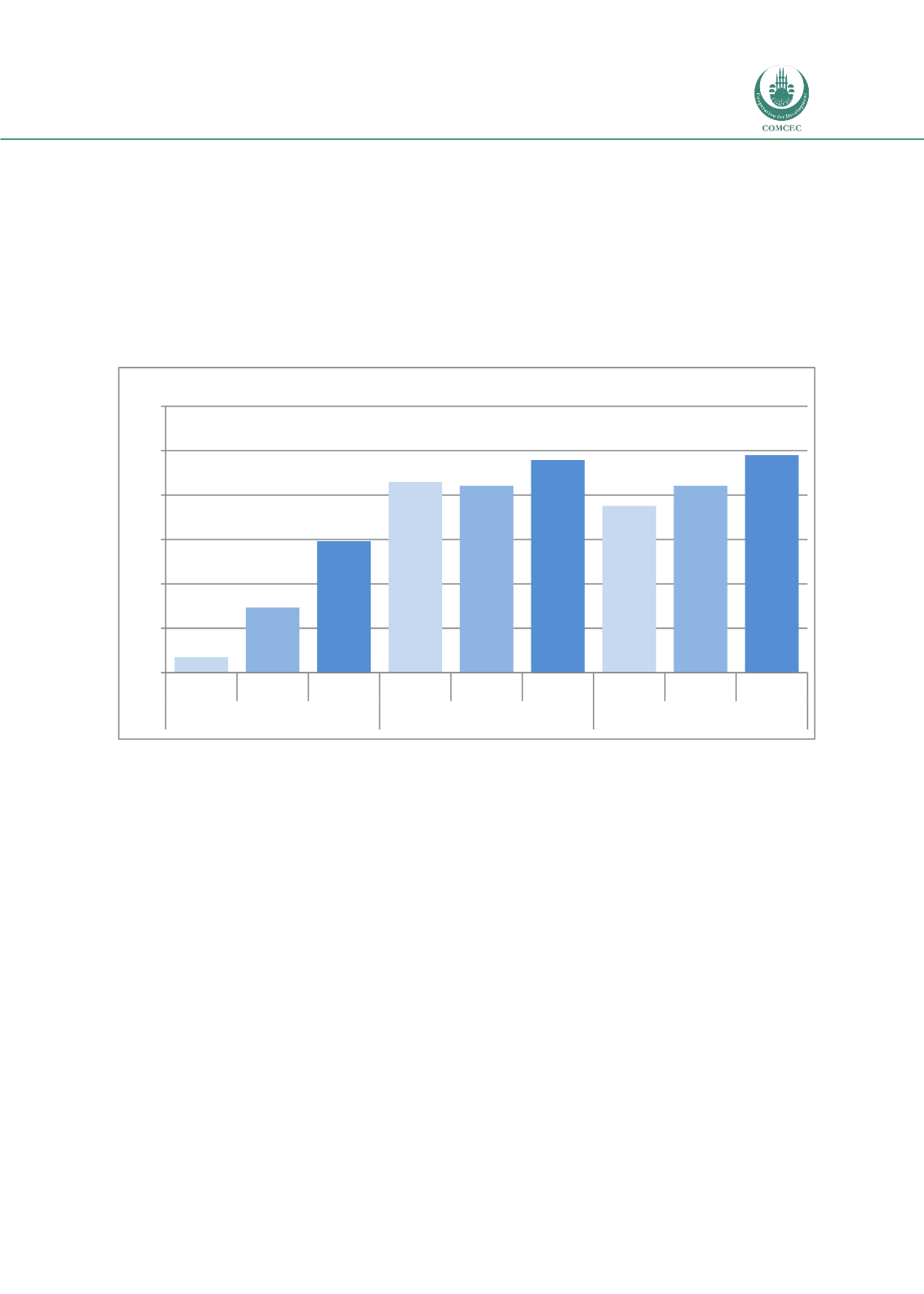

COMCEC Agriculture Outlook 2016
41
Figure 35 illustrates the percentage of population having access to improved drinking
water sources in the OIC and world. The figure shows the improvements in the percentage of
the population with reasonable access to an adequate amount of water from an improved
source in the period of 1990-2014. As it is seen in the figure, as of 2014, 84 percent of OIC
population has an access to improved drinking water sources; while it was 71 percent in 1990.
Compared to the world, access to improved water sources in the OIC is lower than the world
average over the years.
Figure 36. Access to Improved Water Sources in the OIC by Sub-Regions
Source: Calculated by using FAOSTAT
At the sub-regional level, there is no serious problem in Asian Group, and Arab Group
with respect to access to improved water sources. The percentage of population having access
to improved drinking water sources has reached to 89 percent in Asian Group in 2014, and 88
percent in Arab Group, which were slightly lower than the world average. Nevertheless, access
to improved water sources in African Group is still a big concern. Even though great extent of
progress has been achieved from the 1990s to the present, the percentage of population
having access to improved drinking water sources of African Group was recorded as 70
percent in 2014.
3.4.
Stability
The definition of food security stresses the time spatial extent of food security by stating
“when all people,
at all times
, have physical, social and economic access to safe and nutritious
food … for an active and healthy life”. In this definition,
at all times
refer to the stability aspect
by covering the availability, access and utilization dimension of food security on a periodic
basis. Furthermore, it emphasizes the importance of having to reduce the risk of adverse
43
55
70
83
82
88
78
82
89
40
50
60
70
80
90
100
1990
2000
2014
1990
2000
2014
1990
2000
2014
African Group
Arab Group
Asian Group
Percent
















